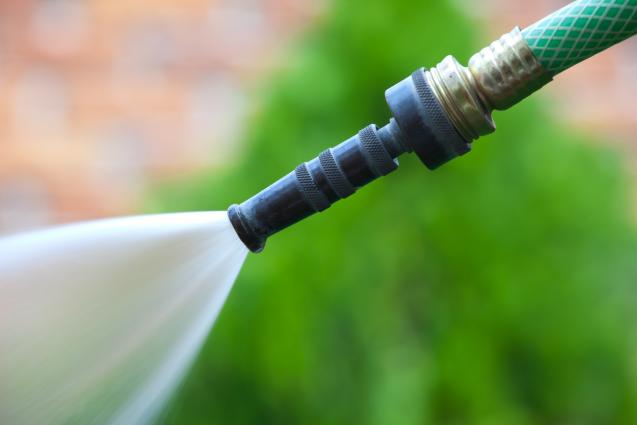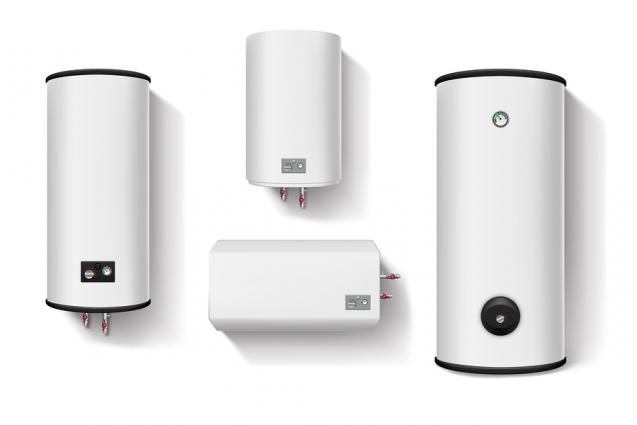
Essential Tips for Cutting Down Your Energy Expenses
By Fluid Plumbing|March 26, 2024
With the steadily increasing cost of energy in Australia, the need to find effective and efficient methods of cutting energy expenses has never been more critical. Today, more importance is being attached to energy-saving techniques as a solution to the global need to reduce environmental impact and counter soaring household utility bills. At a granular level, understanding the spectrum of energy conservation and efficiency can translate into substantial savings on electricity bills each year whilst simultaneously promoting a greener living environment.
Understanding Your Energy Consumption
Understanding your energy expenditure forms the bedrock of any effective energy-saving strategy. This comprehension goes beyond a cursory glance at the total bill at the end of the month but delves into the fine details of your energy bills - a process which encourages proactive and effective management of your energy usage.
An examination of the different aspects of your bill, including average daily usage, peak demand, and other tariffs, will reveal which appliances and systems are the high-energy users in your home. This ability to understand your current electricity bill then enables you to develop targeted strategies to reduce energy consumption where it counts.
To increase transparency in energy usage, several tools are available that provide real-time feedback on your energy usage. Such tools, including apps and smart home devices, can help fine-tune your energy-saving strategies. For example, using energy monitors, you can keep an eye on real-time consumption data, and even isolate individual appliances, thereby better understanding where to make changes.
Energy-Efficient Appliances and their Benefits
Switching to energy-efficient appliances offers an entry point to significant energy reductions and accompanying cost savings. Devices that carry the Energy Star ratings meet the stringent guidelines for energy efficiency, an assurance that using such products correlates to less energy usage.
Modern technology has availed energy-efficient models of common household appliances such as refrigerators, washing machines, clothes dryers, dishwashers, and more, which utilise considerably less energy than older models. While the initial investment can be high, the long-term energy and cost savings typically outweigh these costs over time.
Tips to Reduce Heating and Cooling Costs
Heating and cooling systems form a substantial part of household energy consumption and are therefore perfect candidates for energy reductions. An efficient starting point is to adjust your thermostat setting. Even one or two degrees can lead to significant energy savings without adversely impacting your comfort level.
Additionally, regular maintenance for heating and cooling systems can significantly enhance energy efficiency. This includes cleaning or replacing air filters regularly, checking refrigerant levels, properly insulating ducts, and installing programmable thermostats.
Also, consider alternative heating and cooling methods such as using fans instead of air conditioners, insulating your home, double glazing windows and taking advantage of natural heating and cooling patterns during different seasons.
Implementing Smart Lighting Solutions
The right lighting choices will impact how much you pay for energy. Moving away from conventional incandescent bulbs to LED or CFL bulbs is a simple change that can have big impacts. These bulbs use 25-80% less energy than traditional bulbs and last significantly longer.
Furthermore, consider the wise use of natural light in your home, which avoids the need for switched-on lights during the day. Skylights, open curtains and blinds, and strategically placed mirrors can enhance the natural light that infiltrates your living spaces. Install automatic timers for outdoor lights, and embrace the use of smart lighting, which can adjust to natural light levels and user needs.
Green Energy Alternatives for your Home
Harnessing green energy sources represents another avenue for significant energy savings. Consider investments in solar panels and wind turbines, which, whilst having substantial initial costs, offer undeniable reductions in energy expenses in the long run.
In conclusion, significant energy savings are achievable through a keen understanding of your energy consumption, leveraging energy-efficient appliances, managing your heating and cooling systems wisely, implementing savvy lighting solutions and embracing renewable sources of energy. Adopting these energy-saving tips will surely translate into substantial savings on your energy bills and help to create a healthier, sustainable environment for future generations. So, let's take these energy-saving tips on board and redefine our households as paragons of energy efficiency.
Understanding Your Energy Consumption
Understanding your energy expenditure forms the bedrock of any effective energy-saving strategy. This comprehension goes beyond a cursory glance at the total bill at the end of the month but delves into the fine details of your energy bills - a process which encourages proactive and effective management of your energy usage.
An examination of the different aspects of your bill, including average daily usage, peak demand, and other tariffs, will reveal which appliances and systems are the high-energy users in your home. This ability to understand your current electricity bill then enables you to develop targeted strategies to reduce energy consumption where it counts.
To increase transparency in energy usage, several tools are available that provide real-time feedback on your energy usage. Such tools, including apps and smart home devices, can help fine-tune your energy-saving strategies. For example, using energy monitors, you can keep an eye on real-time consumption data, and even isolate individual appliances, thereby better understanding where to make changes.
Energy-Efficient Appliances and their Benefits
Switching to energy-efficient appliances offers an entry point to significant energy reductions and accompanying cost savings. Devices that carry the Energy Star ratings meet the stringent guidelines for energy efficiency, an assurance that using such products correlates to less energy usage.
Modern technology has availed energy-efficient models of common household appliances such as refrigerators, washing machines, clothes dryers, dishwashers, and more, which utilise considerably less energy than older models. While the initial investment can be high, the long-term energy and cost savings typically outweigh these costs over time.
Tips to Reduce Heating and Cooling Costs
Heating and cooling systems form a substantial part of household energy consumption and are therefore perfect candidates for energy reductions. An efficient starting point is to adjust your thermostat setting. Even one or two degrees can lead to significant energy savings without adversely impacting your comfort level.
Additionally, regular maintenance for heating and cooling systems can significantly enhance energy efficiency. This includes cleaning or replacing air filters regularly, checking refrigerant levels, properly insulating ducts, and installing programmable thermostats.
Also, consider alternative heating and cooling methods such as using fans instead of air conditioners, insulating your home, double glazing windows and taking advantage of natural heating and cooling patterns during different seasons.
Implementing Smart Lighting Solutions
The right lighting choices will impact how much you pay for energy. Moving away from conventional incandescent bulbs to LED or CFL bulbs is a simple change that can have big impacts. These bulbs use 25-80% less energy than traditional bulbs and last significantly longer.
Furthermore, consider the wise use of natural light in your home, which avoids the need for switched-on lights during the day. Skylights, open curtains and blinds, and strategically placed mirrors can enhance the natural light that infiltrates your living spaces. Install automatic timers for outdoor lights, and embrace the use of smart lighting, which can adjust to natural light levels and user needs.
Green Energy Alternatives for your Home
Harnessing green energy sources represents another avenue for significant energy savings. Consider investments in solar panels and wind turbines, which, whilst having substantial initial costs, offer undeniable reductions in energy expenses in the long run.
In conclusion, significant energy savings are achievable through a keen understanding of your energy consumption, leveraging energy-efficient appliances, managing your heating and cooling systems wisely, implementing savvy lighting solutions and embracing renewable sources of energy. Adopting these energy-saving tips will surely translate into substantial savings on your energy bills and help to create a healthier, sustainable environment for future generations. So, let's take these energy-saving tips on board and redefine our households as paragons of energy efficiency.



